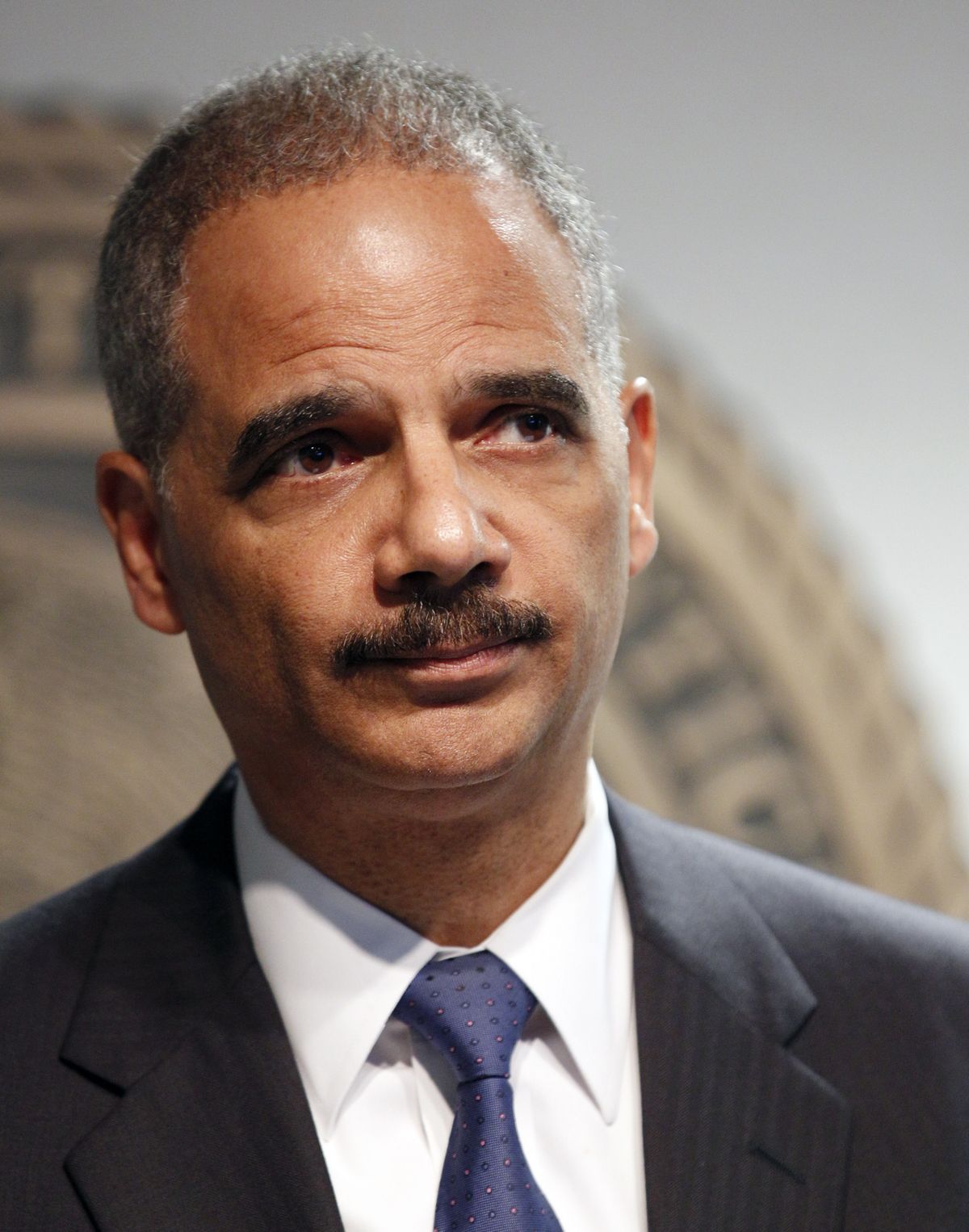House finds attorney general in contempt of Congress

WASHINGTON – Attorney General Eric Holder on Thursday became the first Cabinet member held in contempt of Congress, a rebuke pushed by Republicans seeking to unearth the facts behind a bungled gun-tracking operation and dismissed by most Democrats as a political stunt.
The vote was 255-67, with more than 100 Democrats boycotting.
African-American lawmakers led the walkout as members filed up the aisle and out of the chamber to protest the action against Holder, who is the nation’s first black attorney general. Democratic leader Nancy Pelosi of California joined the boycott, saying Republicans had gone “over the edge” in their partisanship.
Seventeen Democrats voted with Republicans in favor of the contempt vote, while two Republicans – Reps. Scott Rigell of Virginia and Steven LaTourette of Ohio – joined other Democrats in voting against it.
The National Rifle Association pressed hard for the contempt resolution, leaning on members of both parties who want to stay in the NRA’s good graces.
Holder said afterward that the vote was merely a politically motivated act in an election year
“Today’s vote may make for good political theater in the minds of some, but it is – at base – both a crass effort and a grave disservice to the American people. They expect – and they deserve – far better,” Holder said in New Orleans.
The attorney general said the House vote would result in an unnecessary court fight. Republicans “were not interested in bringing an end to this dispute or even obtaining the information they say they wanted,” he said. “Ultimately, their goal was the vote that – with the help of special interests – they now have engineered.”
Republicans cited Holder’s refusal to hand over – without any preconditions – documents that could explain why the Obama administration initially denied that a risky “gun-walking” investigative tactic was used in Operation Fast and Furious, which allowed hundreds of guns to be smuggled from Arizona to Mexico.
The vote on a criminal contempt resolution sent the matter to the U.S. attorney for the District of Columbia, who is under Holder.
A separate vote on civil contempt passed 258-95 with 21 Democrats supporting it. It will allow the House to go to court in an effort to force Holder to turn over the documents.
In past cases, courts have been reluctant to settle disputes between the executive and legislative branches of government.
During the debate before the vote, Republicans said they were seeking answers for the Michigan family of Brian Terry, a Border Patrol agent killed in December 2010 in a shootout with Mexican bandits. Two guns from Fast and Furious were found at the scene.
Democrats insisted that they, too, wanted the Terry family to have all the facts, but argued that only a more thorough, bipartisan investigation would accomplish that.
The NRA contended the administration wanted to use Operation Fast and Furious to win gun control measures.
The dispute is both legal and political. Republicans asserted their right to obtain documents needed for an investigation of Operation Fast and Furious – focusing on 10 months in 2011 after the Obama administration initially denied guns were allowed to “walk” from Arizona to Mexico. By year’s end, the administration acknowledged the assertion was wrong.
President Barack Obama asserted a broad form of executive privilege, a legal position designed to keep executive branch documents from being disclosed. The assertion ensures that documents will not be turned over any time soon, unless a deal is reached between the administration and congressional Republicans.
For the past year and a half, some Republicans have promoted the idea that Holder and other top-level officials at the Justice Department knew federal agents in Operation Fast and Furious had engaged in gun-walking.
Two of Holder’s emails and one from Deputy Attorney General James Cole in early 2011 appear to show that they hadn’t known about gun-walking but were determined to find out whether the allegations were true.
“We need answers on this,” Holder wrote. “Not defensive BS. Real answers.”
The Justice Department showed the selected emails on Tuesday to Republican and Democratic staffers of the House Oversight and Government Affairs Committee, in an effort to ward off the criminal contempt vote against the attorney general.
In Operation Fast and Furious, agents of the federal Bureau of Alcohol, Tobacco, Firearms and Explosives abandoned the agency’s usual practice of intercepting all weapons they believed to be illicitly purchased. Instead, the goal of “gun-walking” was to track such weapons to high-level arms traffickers who had eluded prosecution and to dismantle their networks.
Gun-walking long has been barred by Justice Department policy, but federal agents in Arizona experimented with it in at least two investigations during the George W. Bush administration before Operation Fast and Furious. The agents in Arizona lost track of several hundred weapons in that operation.